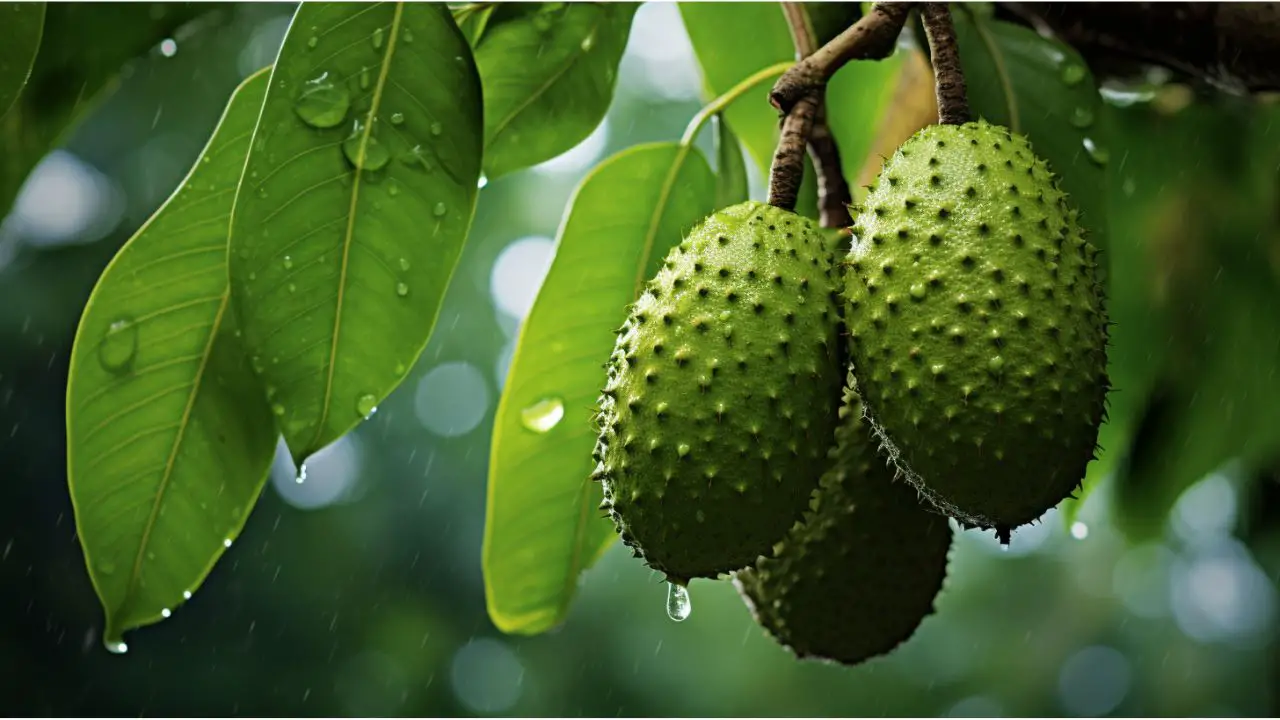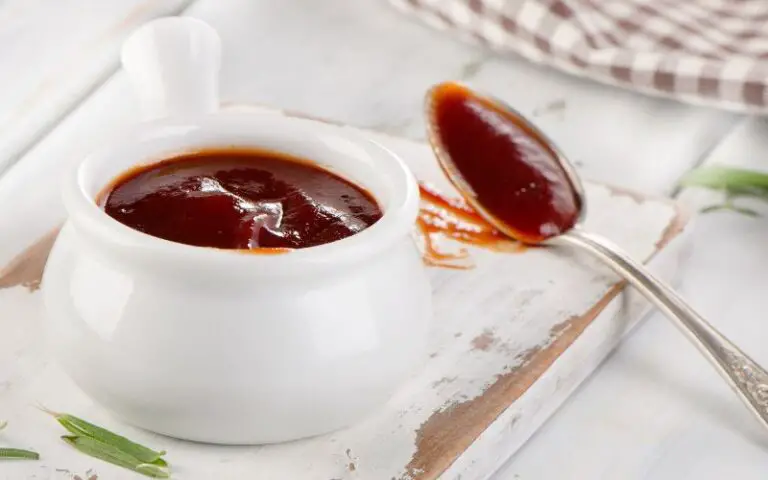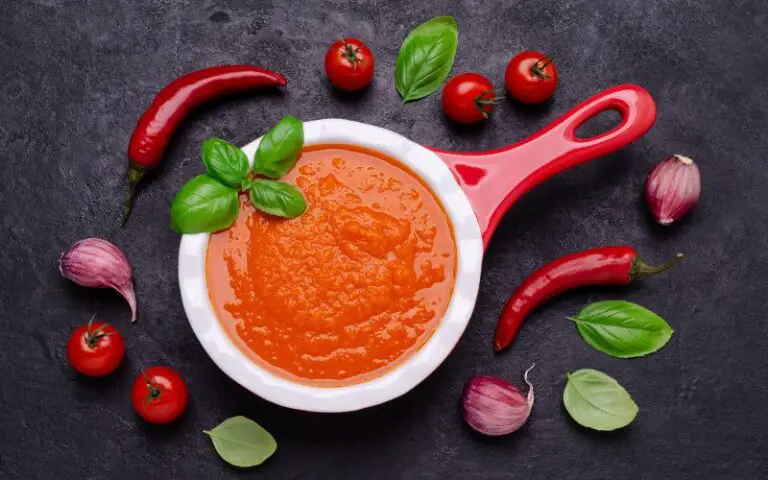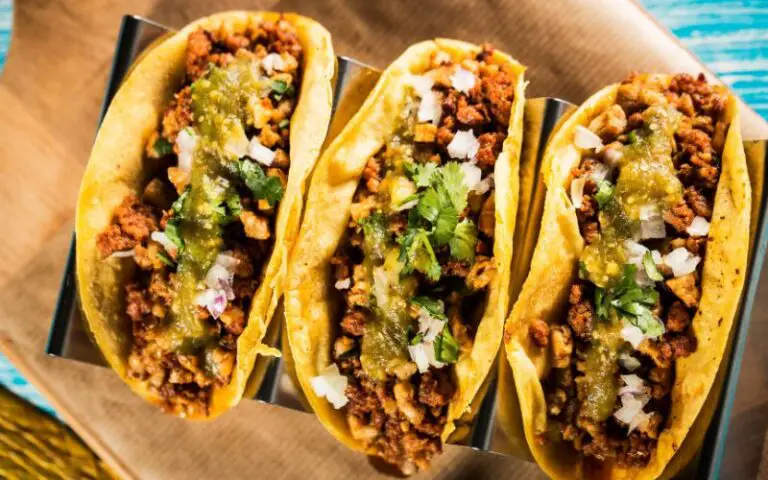Is Soursop Banned in the US? Uncover the Surprising Truth!
Last updated on September 11th, 2023 at 02:13 pm
Hey there, fruit enthusiasts! You’ve probably heard the buzz about a tropical delight called soursop (also known as Graviola or Annona muricata) and found yourself wondering, “Is soursop banned in the US?”
Well, buckle up because we’re about to peel back the layers of this juicy controversy.
We’ll be diving deep into soursop safety concerns, untangling the knot of US food and drug regulations, and exploring whether graviola import regulation is tripping up its legality in America.
From health risks to natural cancer treatment debates – it’s all here. So, hold onto your taste buds as we bite into this forbidden fruit saga!
The Legal Status of Soursop in the United States

When it comes to the soursop legality in the US, things are as tricky as a maze.
It’s not completely banned, but it’s neither fully regulated. Think of it like a teenager with a half-driving license!
So, here’s the catch: while some parts of Uncle Sam’s country put up restrictions on soursop, chowing down on this tropical treat is perfectly legal nationwide.
Imagine this! You can easily snag soursop nectars and juices from giants like Walmart and Amazon.
But hold your horses before you plan to bring raw soursops into mainland America from exotic locales such as Hawaii or Mexico.
#1. Graviola Import Regulation
Beware: Importing raw soursop into the U.S. is as off-limits as a private party!
Concerns over graviola fruit ban status in the US are primarily due to potential health risks and fears regarding alien pests that could hitchhike and harm local agriculture.
It’s like protecting your home from unwanted intruders!
The Irony:
- Annona muricata, also known by its popular name soursop, promises potential health benefits yet brings along an array of controversies.
- The fruit -safe when cooked rightly- can turn dangerous if seeds or leaves sneak into your plate!
- In spite of worrying about the FDA on soursop consumption due to possible movement disorders linked with eating fruit, enthusiasts continue to celebrate its benefits.
#2. Natural Cancer Treatment Controversy
Here is where things take a dramatic twist bordering on irony: some believe that this humble tropical fruit might help fight infections and maybe even duke it out with cancer cells! Can you believe that?
However, let’s not get ahead of ourselves – we need more research data for these claims to be as solid as concrete.
In conclusion (but remember I said there wouldn’t be one!), our dear Annona muricata, despite being entangled in numerous controversies such as import regulations and safety concerns, continues to win hearts across America through processed and frozen forms available online or in stores.
Nevertheless, US food and drug regulations keep preventing us from enjoying fresh-off-the-tree fruits unless grown locally – all for preserving native crops.
Now, isn’t that an intriguing love-hate relationship we have here with our beloved banned fruits in the US market?
Where Can You Buy Soursop in the U.S.?
As research data suggests, the soursop legality in the US is a bit of a mixed bag; it’s not entirely banned, but it’s not free rein either.
Think of it like a box of chocolates where you’re allowed to enjoy some pieces, but others are off-limits.
#1. The Sweet and Sour of Soursop Shopping
You might be wondering if there’s any ‘soursop safety concerns’ as you pick up that shiny can of soursop nectar while you’re out for your weekly grocery haul at Walmart or as you click ‘add to cart’ for that tempting bottle of soursop juice on Amazon.
The answer is – Absolutely Not! Both processed and frozen versions are good to consume!
But here’s the catch! Grab your magnifying glasses and get ready for some detective work because this involves understanding graviola import regulation.
In simpler terms, fresh soursops can’t just waltz into mainland America from places like Hawaii or Mexico.
The reason? Well, the feds have their eyes peeled due to agricultural regulations aimed at protecting native crops from foreign pests or diseases.
#2. Banned Fruits and Potential Health Risks
Is Annona muricata banned? Not wholeheartedly! While there are indeed soursop fruit restrictions, these mainly revolve around the import of exotic fruits in the US and certain parts of the plant itself such as leaves and seeds which can be toxic.
This might feel like playing hopscotch on thin ice, right? However, remember this – when we talk about the FDA on soursop consumption, they wouldn’t let something potentially harmful slip through their net so easily!
That’s why when graviola fruit ban status in the US comes under scrutiny, these restrictions are not just random hurdles but more akin to speed breakers ensuring our safety amid the health risks of soursop.
Using tropical fruit law in America as a guiding compass helps us navigate these tricky waters without stepping on any ‘land mines.’
Even though banned fruits in the US market do exist – we still have plenty of delicious options left!
#3. Unraveling Potential Health Benefits Amidst Controversy
While some view Soursop as a knight in shining armor with potential health benefits such as combating infections or even fighting cancer cells – these claims come with a fair share of controversy attached.
Natural cancer treatment controversy isn’t exactly surprising given how complex cancer biology is – one man’s meat could indeed be another man’s poison!
#4. Nevertheless,
- You can find processed or frozen versions.
- Avoid importing raw ones due to agricultural regulations.
- Eat only certain parts due to potential toxicity.
- Weigh potential health benefits against associated risks.
Remember – looking before leaping always makes sense especially when it comes down to what we put into our bodies!
Why Importing Raw Soursop into the U.S. is Prohibited
Navigating the maze of Graviola import regulation can be like juggling a porcupine – pricky and complicated.
Annona muricata, or soursop as it’s commonly known, isn’t technically banned in the U.S.
In fact, you can get your hands on soursop nectars and juices from local shops or online giants like Walmart and Amazon.
However, if you’re dreaming of fresh tropical goodness by bringing raw soursops from Hawaii or Mexico into mainland America, you might hit a snag due to agricultural regulations.
#1. The Fruitful Mystery: Soursop Legality in the US
This bittersweet tale of soursop legality in the US isn’t without its twists and turns.
Fresh soursop fruit restrictions exist primarily because Uncle Sam’s got a keen eye on protecting local agriculture from foreign nuisances – pests or diseases that could wreak havoc on native crops.
- US food and drug regulations prohibit the import of exotic fruits in the US, including fresh soursops.
- Banned fruits in the US market often present potential health risks.
#2. The FDA’s Take: Soursop Safety Concerns
But wait! There’s more! The FDA on soursop consumption urges caution.
While the fruit itself is safe to munch on when prepared properly, other parts of this tropical marvel – like its leaves and seeds- hide a toxic secret!
The health risks of soursop include toxicity from leaves and seeds leading to movement disorders.
Figuratively putting salt on the wound is the ongoing ‘natural cancer treatment’ controversy around this exotic fruit; claims about its supposed superpowers to fight infections or even cancer cells are yet to be scientifically proven beyond doubt.
In summary:
- Potential health benefits such as fighting infections have been touted, but research is still ongoing.
- Skepticism surrounds claims that consumption can fight cancer cells.
So even though you’re sailing under tropical skies with dreams of fresh Graviola goodness (I mean who wouldn’t?), remember that graviola fruit ban status in the US lies somewhere between a ‘yes’ for processed versions and a ‘no-go zone’ for raw imports due to safety concerns underlined by agricultural regulations. It’s almost like an elusive chameleon shifting colors amidst our quest for tropical delight!
Health Risks Associated with Consuming Certain Parts of the Soursop Plant
The soursop plant, known scientifically as Annona muricata, has a bit of a Jekyll and Hyde personality in the world of health and nutrition.
It’s something of an enigma – both hailed as a cancer-fighting superstar, yet at the same time shrouded in controversy due to its potential health risks.
#1. Beware The Poisonous Parts!
While you can safely enjoy soursop nectar and juices, saying ‘open sesame’ to some parts of the plant might leave you bitten by an unexpected sting.
Specifically, the leaves and seeds are known to be toxic if consumed. This comes under soursop safety concerns that everyone needs to be aware of.
Like an apple tempting Snow White, soursop fruit entices with its sweet taste while hiding potentially harmful effects.
There have been instances where consumption has been linked with movement disorders—truly a wolf in sheep’s clothing!
So, while it may be legal to consume some forms of soursop under soursop legality in the US, precaution is definitely better than cure!
#2. Graviola Import Regulation And US Food And Drug Regulations
A close relative to our two-faced friend – Soursop – is Graviola. However, don’t expect this tropical visitor at your local grocery store anytime soon!
The importation of raw graviola into mainland America is prohibited due to regulations aimed at protecting native crops from foreign pests or diseases – quite like a quarantine for fruits!
- Annona muricata banned?: Not entirely but there are restrictions on importing fresh soursops into America.
- Soursop Fruit Restrictions: As per USDA regulations, importation from locales like Hawaii or Mexico is not permitted for fear that foreign pests could infiltrate local agriculture.
- FDA on Soursop Consumption: While processed versions are permissible for use within U.S. boundaries – think canned or frozen options – the FDA advises against consuming raw fruit due to health risks.
Tropical Fruit Law In America & Banned Fruits In US Market: The good ol’ USA can sometimes seem prickly about welcoming tropical guests like these into their markets.
But remember folks, these rules aren’t offshoots of an overzealous bureaucracy; they’re there for our protection.
Despite raising eyebrows over its too-good-to-be-true claims as a natural cancer treatment – we’ve all heard whispers about ‘miracle’ cures – more research still needs to go into unraveling this controversial character named Soursop!!
So buckle up folks; it seems this citrusy mystery isn’t done serving us surprises just yet.
Potential Health Benefits of Soursop and Current Medical Research
When it comes to the controversy and complexity surrounding soursop, or Annona muricata, it’s a mixed bag. The soursop legality in the US isn’t cut and dry.
While you’re free to gulp down soursop nectars and juices ’til your heart’s content, taking a bite out of raw soursop has its restrictions.
You see, the import of exotic fruits in the US, like fresh soursops from paradise-like Hawaii or vibrant Mexico, is a no-go due to strict graviola import regulations.
#1. Soursop Safety Concerns: Not All Sun and Rainbows
While the fruit itself plays nice when properly prepared, other parts aren’t so friendly. The leaves? Toxic! The seeds? Dangerous!
Consuming them is akin to dancing with danger as they’ve been linked with scary stuff like movement disorders – not exactly peaches and cream.
#2. FDA on Soursop Consumption: A Wariness Worth Noting
And then there are health risks of soursop that have put it under the microscope of US food and drug regulations.
It’s a rollercoaster ride – some people swear by its potential health benefits while others remain skeptical.
• It could be a knight in shining armor fighting infections.
• Some even lean on it as a natural cancer treatment.
But remember folks, these claims need more rigorous research before we start cheering “hooray”.
In short, while soursops can be found in digital aisles (think Amazon) or retail giants like Walmart, our tropical friend exists within a legal gray area due to concerns over foreign pests hitching rides on them into mainland America.
#3. Banned Fruits in the US Market vs. Annona Muricata’s Status
There’s this lingering sense that Annona muricata is banned, but oh boy! We’re being tossed between two extremes here.
It’s neither completely illegal nor entirely regulated – just dancing somewhere in the middle with an aura of mystery around its status compared to definitively banned fruits in the US market.
Sounds like a plot twist straight out of a Hollywood movie right? But let’s make sure we’re not getting caught up in catchy phrases –
‘Graviola fruit ban status’ – instead keep our eyes peeled for more concrete studies about possible health benefits derived from this tropical wonder while adhering strictly to existing import rules for exotic fruits.






